In a world that’s becoming more and more dominated by digital gear, guitar pedals are still holding on. In fact, guitar pedals are alive and well, and still can provide that tone that sets you apart from others. They can certainly help you with creativity as well.
If you are asking yourself if you need to give up on pedals and go completely digital, stick around. You may end up discovering why analog pedals are still worth your investment in the years to come.
Generally, guitarists use guitar pedals because they want a specific sound that can’t be found on their amp. Most amplifiers have EQ, reverb, & delay, however, they won’t include other FX. Furthermore, some players prefer digital emulations of classic pedals but a market for analog persists.
Many guitarists around the world will vociferously debate whether guitar pedals are still relevant. But as a guitarist who has plenty of plugins and analog pedals, I think the answer to this question is very clear. Analog gear still sounds better. But I digress, here are some of the main reasons why you might consider getting analog pedals.
Analog Guitar Pedals vs Plugins (An Overview)
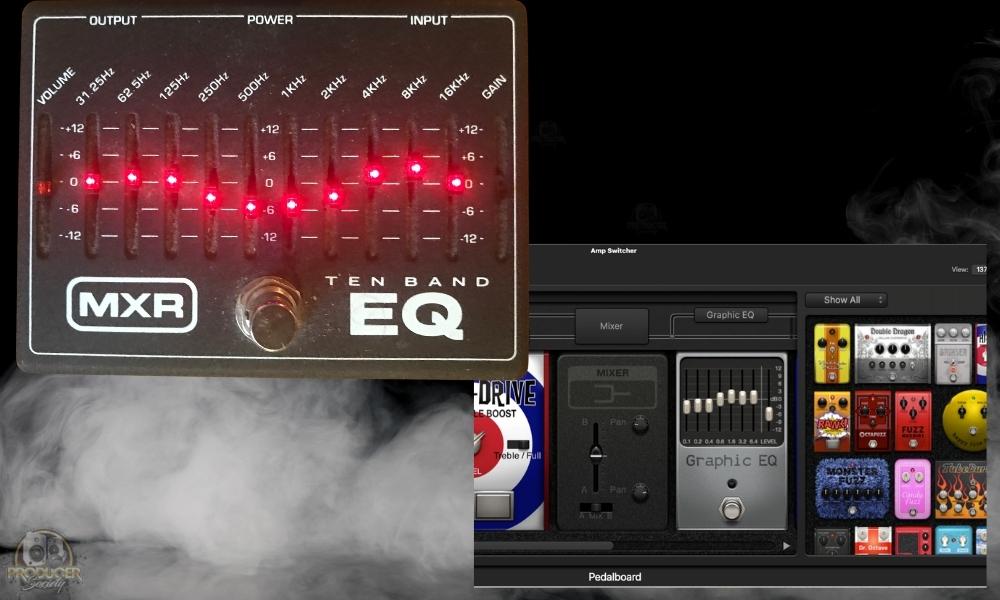
Back in the early 2000s (and before), many companies started experimenting with digital software that recreates distortion, reverb, and other effects for guitar players. And many companies have created fantastic emulations of guitar pedals.
Some of these sounds can get really close to sounding like a real guitar pedal and they’ve improved a lot over the last decade. This provided a much more minimalist approach and, in many cases, an easier way to get started with guitar playing.
They also save a ton of space, money, and time as I argued in my other article on amps vs computer monitors. A lot of people – young people especially – have moved on from analog equipment. And it’s not hard to understand why considering the above factors.
It seems like the younger crowd use plugins and other software that they’ve downloaded online over analog gear. That said, there are a few really important reasons why people still use traditional guitar pedals. And I think they will for the next few decades.
Moreover, there are still guitar pedals for sale in every guitar shop, music store, and online music platform. Guitar pedals are worth the investment, which is one reason why guitarists still use them.
The Main Reasons Guitarists Still Use Pedals
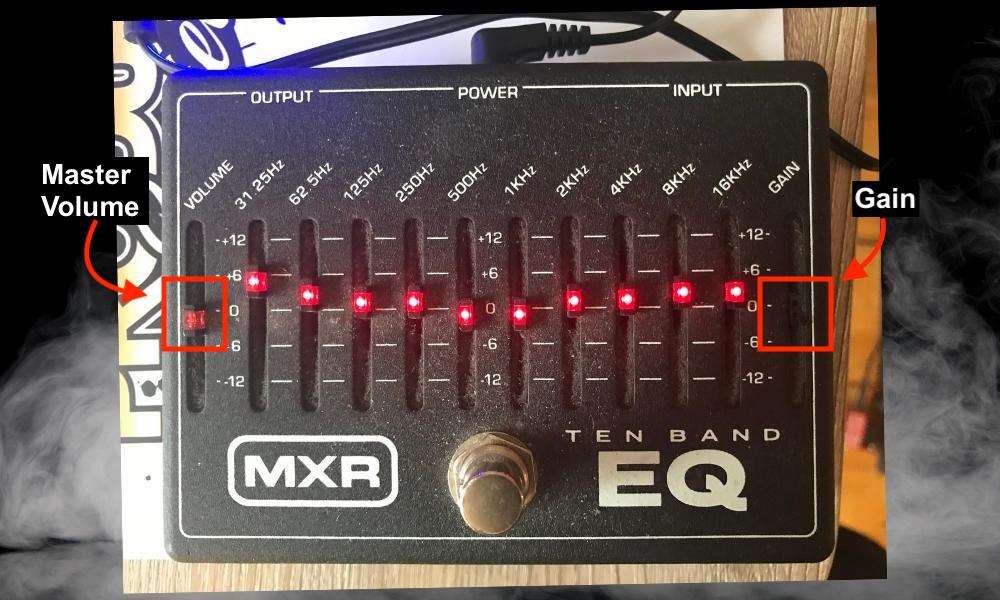
1) Guitar Pedals Still Sound Better Than Plugins
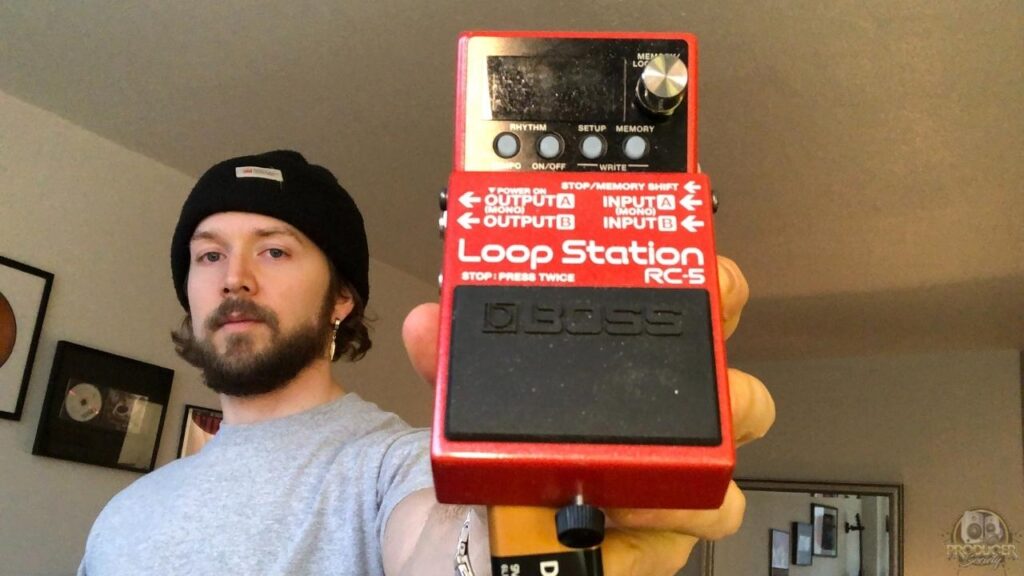
Guitar plugins were created to recreate the sound of certain amps and guitar pedals. Some would argue that since this amazing breakthrough in technology, there is no longer a need for guitar pedals.
While I adore most guitar plugins and I spend money on them all of the time, the real analog pedals are still where it’s at in terms of quality and accessibility. Don’t get me wrong, some high-end plugins sound absolutely fantastic.
Certain amp simulations from Blue Cat Audio, Amplitube, or Line 6 sound really good and really close to the real thing. It’s still not the real thing, though. A Tubescreamer plugin is not as full or as accurate as a real Tubescreamer.
2) Guitar Pedals Are Great for Live Performances

Guitar pedals are great for live performances because of the immediate access to change the sounds you need for that particular gig. Let’s say you arrive at a gig and the room sounds nothing like the room you practiced in.
The bass in your tone is missing, the reverb you have just isn’t carrying enough, and the brick walls in the back of the venue make your guitar sound small and weak.
An EQ pedal like the MXR 10-Band EQ is a great way to improve this – something Euge Valovirta argued on his channel as well.
The great thing about knobs and dials on an amp and analog pedals is that you have immediate access to change the sound you think sounds best for the room you are playing in.
With plugins or emulations, you may be limited by the amount of distortion or saturation on your plugin, or it sounds too fake when you really try to push for some heavy distortion. Analog distortion is, without a doubt, better than digital (at least in my opinion).
3) Pedals are Durable Because They’re Usually Made from Steel
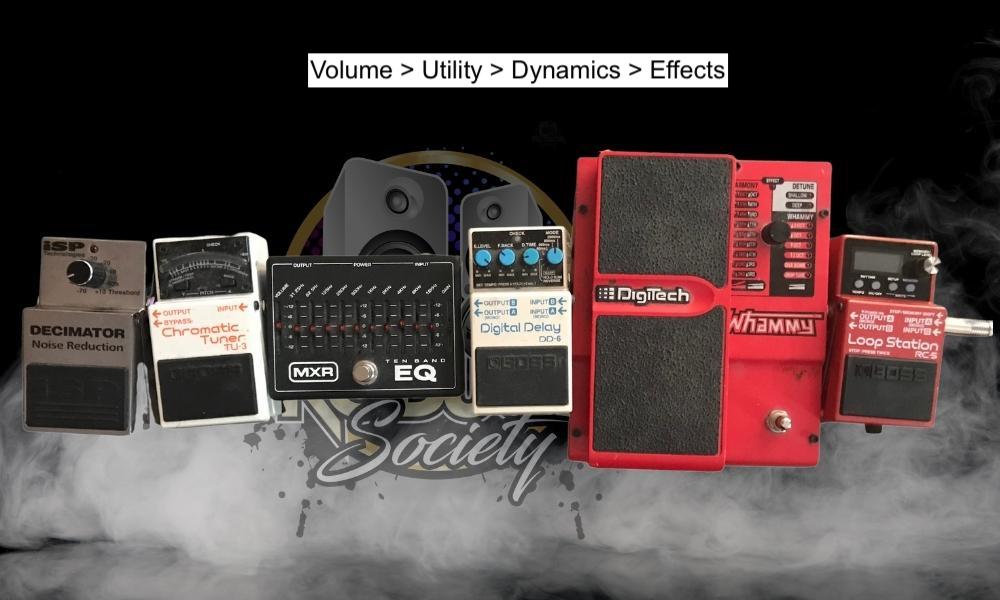
If you have ever held a BOSS pedal in your hand, then you know how durable those guitar pedals really are. The same goes for Dunlop’s MXR pedals. Not only do these pedals have a quality sound, but they are also built to last for years or even decades.
As an example, I’ve had the MXR 10-Band EQ for over 12 years, the Digitech Whammy Pedal for over 12 years, and then the BOSS DD-6 Digital Delay for around a decade. And there is no end in sight for any of them because they all work perfectly to this day.
Plugins are also durable, in a way, because they’re just computer software. However, the software can be corrupted, you can lose or break your computer, and there are never-ending updates.
It’s not uncommon for producers and musicians to avoid updates for the longest time because they don’t know how all of their plugins will interact with new operating systems.
If you’re interested, which you probably are if you’re reading this, there is a great video by Revv Amps about how guitar pedals are made. This video is fascinating and starts with the pedal’s steel casings being treated to last for decades.
Certain pedals are made of aluminum or heavy-duty plastic, but most of what you will find out there that is worth having in the guitar pedal universe is made from quality steel.
4) They’re Fun to Collect and They Look Cool
![Pedalboard - Why Do People Use Guitar Pedals [What You Want to Know]](https://travelingguitarist.com/wp-content/uploads/2022/04/Pedalboard-Why-Do-People-Use-Guitar-Pedals-What-You-Want-to-Know.jpg)
One of my favorite things to do at a concert, or when I am at a restaurant with live music, is check out the guitar player’s pedalboard. There are two reasons why I almost always do this.
1) The first reason why is because it just looks cool. It is almost like asking, “What is this guitar player’s story?”, and immediately get an answer. The different colors, flashing lights, and sizes are fascinating to look at.
2) The second reason is to get new ideas for my pedalboard. I may ask in my head about that certain tone for that solo they just ripped, and get an answer on why that solo sounded the way it did.
And sometimes that means adding another guitar pedal to my collection. Every guitar pedal is a little bit different. They all have a distinct look, color, and more importantly, sound.
The number of guitar pedals that someone can collect can be a bit obsessive, but it can also be very fun. I guarantee the person who collects dozens or even hundreds of guitar pedals has thousands and maybe even millions of tonal possibilities.
But as I just said, it can get out of hand. This is something John Mayer talked about in this YouTube video regarding his “guitar pedal addiction.” And the point of his speech on stage is something we’ll talk about in #7, so just hang on for a second.
5) No One Will Have Your Exact Sound
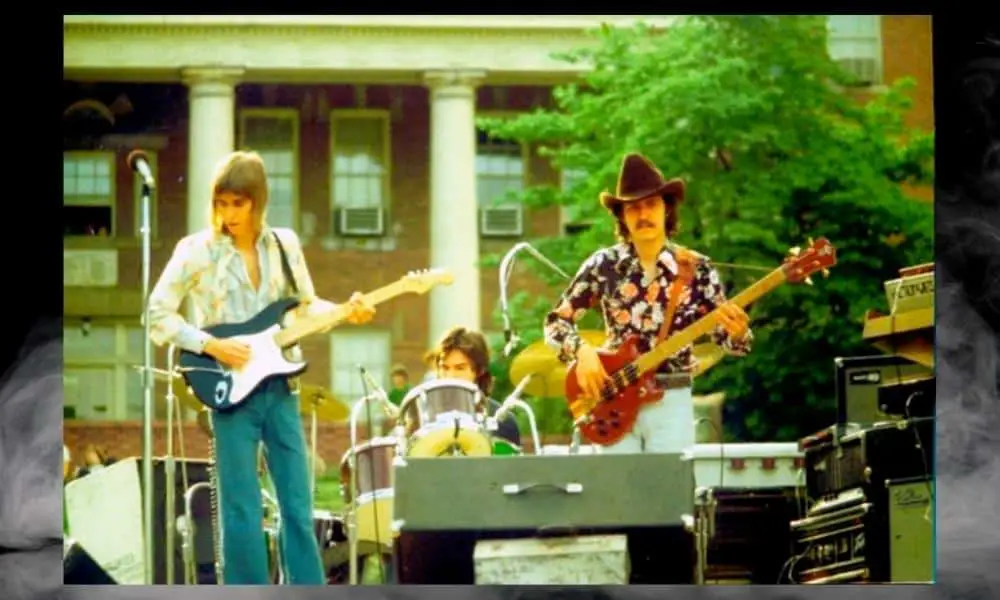
The great thing about analog pedals and building your pedalboard is creating a unique sound that no one can copy. Just to play devil’s advocate, here is a scenario. So you have your pedalboard, and your best friend builds the same one.
Do you have the same sound? Odds are you do not. The tone knobs, mix knobs, routing of the pedals, and amount of compression, gain, or distortion in your signal chain will most likely be different.
Not to mention your guitar and amp selection. The knobs and routing would have to all be identical, and they’re still may be some differences. This is the advantage of using guitar pedals. Find your sound. No one else in the world has it. That is a beautiful thing.
In conjunction with the idea that guitar tone is in your fingers, as people say, there’s no chance anyone will be able to replicate you entirely. Unless they devote their time and energy to sounding like you.
6) Analog Guitar Pedals Sound Fuller and More Authentic
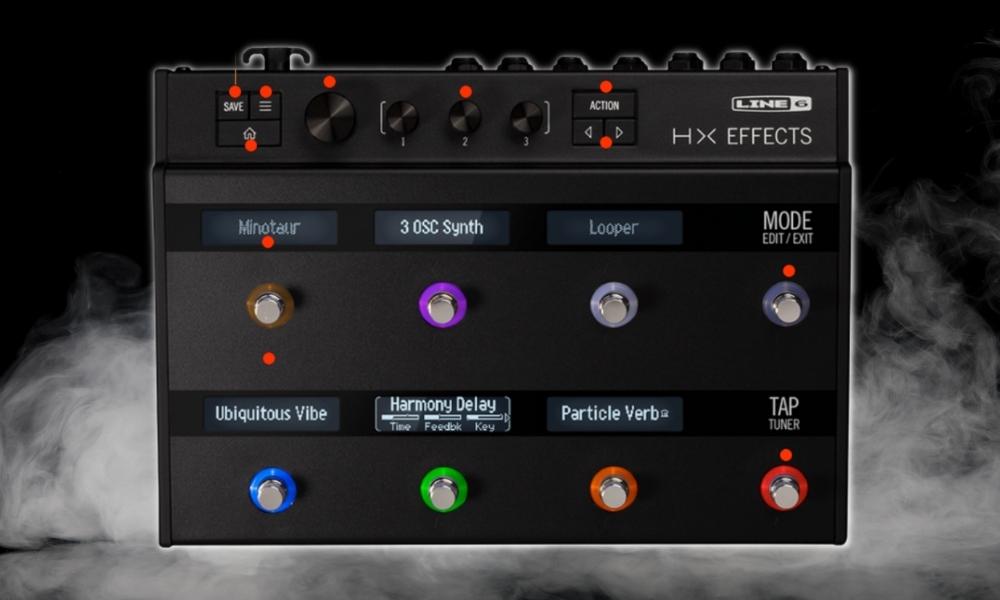
This debate has been going on for a few years now about analog vs. digital in the audio world. The verdict, digital is putting up a solid fight, but analog is still winning.
The same goes for guitar pedals. There is a fullness that I cannot explain with guitar pedals and an amp vs my Line 6 Helix.

The tone is fuller, the sound is fatter, and the reverb is more authentic with my pedals. The distortion with my pedals can be really pushed to the max without sounding too false, thin, and gritty compared to my digital plugins.
7) They Increase Your Creative Possibilities Massively
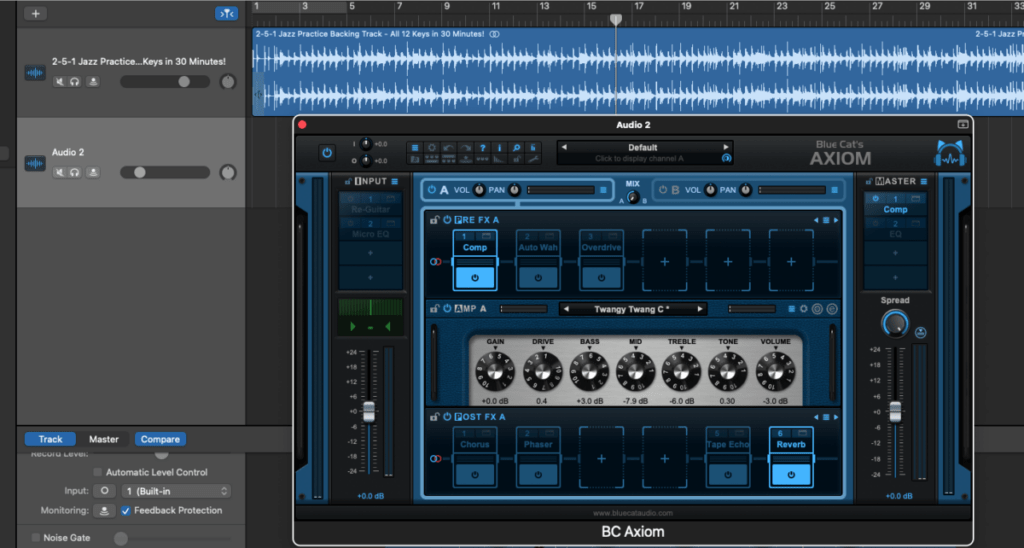
Getting back to what I was talking about with John Mayer, in the video that I mentioned earlier, he appeared to be making the point I’m making to you now. This is that new effects, pedals, and other pieces of gear can inspire you to play.
And when you’re inspired, you become a lot more creative, and motivated, and it just feels great to play and make music. This is part of the reason why people love to buy pedals and other gear.
It’s because it’s extremely fun, and they’re incredibly inspiring. Nothing makes someone want to make music more than brand-new gear that you’re dying to finally take for a test drive.
8) Guitar Pedals Often Have Great Resale Value
![The Digitech Whammy Pedal - Why Do People Use Guitar Pedals [What You Want to Know]](https://travelingguitarist.com/wp-content/uploads/2022/04/The-Digitech-Whammy-Pedal-Why-Do-People-Use-Guitar-Pedals-What-You-Want-to-Know.jpg)
The Digitech Whammy Pedal is a great example of a pedal that goes for several hundred dollars, even if it’s used. It’s not uncommon for guitar pedals to fetch a fairly high price, even if they’re quite old.
The reason for this is what I said earlier – premium pedals are durable and they last for decades. If I’m not mistaken though, I believe the Whammy Pedal is now out of print because Digitech no longer makes them (I could be wrong about this).
This is part of the reason why they’re so expensive even when they’re used.
Why Are There So Many Guitar Pedals?
![Guitar Pedals - Why Do People Use Guitar Pedals? [What You Want to Know]](https://travelingguitarist.com/wp-content/uploads/2022/04/Guitar-Pedals-Why-Do-People-Use-Guitar-Pedals-What-You-Want-to-Know-1.jpg)
1) There is a Massive Market for Guitar Pedals
I went to Sweetwater’s website and searched guitar pedals. The results were astounding. There were over 50 pages of guitar pedals like chorus, phaser, flanger, Wah, distortion, acoustic, compressors, etc.
The list goes on and on. The reason this market still exists is that guitar pedals are still relevant, and they are still amazing.
2) Guitarists Love Gear and Equipment
This argument can pretty much be made for any musician. But musicians love gear and equipment. It is more than the flashy lights, cool switches, and pretty colours.
Gear can make a huge difference in your career. Guitarists love gear and equipment because there are so many possibilities out there for a certain sound and most of us want those options.
3) Guitar Pedals and FX Help Guitarists Mask Mistakes
Another huge reason why people love effects is they mask the mistakes they’re making during a live performance. I remember seeing one of my favourite bands live around a decade ago and I noticed that the Wah Wah Pedal was his pedal of choice that day.
While I can’t say for sure why he was using the wah-wah pedal, part of me thinks it’s because it hides the fact that they can’t play the solo they recorded on the album. Or maybe they could at the time, but it takes far too much practice to get it right.
Sometimes, a lot of gain and distortion, for example, can mask the guitar player’s inability to play something. Gain means they don’t have to fret the strings as much and therefore slurs and other techniques will be much easier.
A clean, dry, tone is the way the guitar sounds. It’s almost like being naked for some guitar players.
4) Pedals Can Help a Musician Learn About Audio Production
About 5 to 6 years into my guitar playing, I played a gig with a friend and he let me use his compression pedal. I had no idea what compression did. What I knew was that it was first in my signal chain and I left it on the entire time.
I couldn’t really hear a tone difference, it just made my guitar louder. But, that sparked an interest in how compression actually works. All of these effects pedals on the market today are based on effects used every single day in music production.
For example, guitar players usually have a great understanding of how an equalizer can work to change the sound of an instrument compared to a singer or tuba player.
Guitar pedals can lead to deeper knowledge not only in guitar playing but the overall understanding of how audio production works.
Is It Ok To Leave Guitar Pedals On?
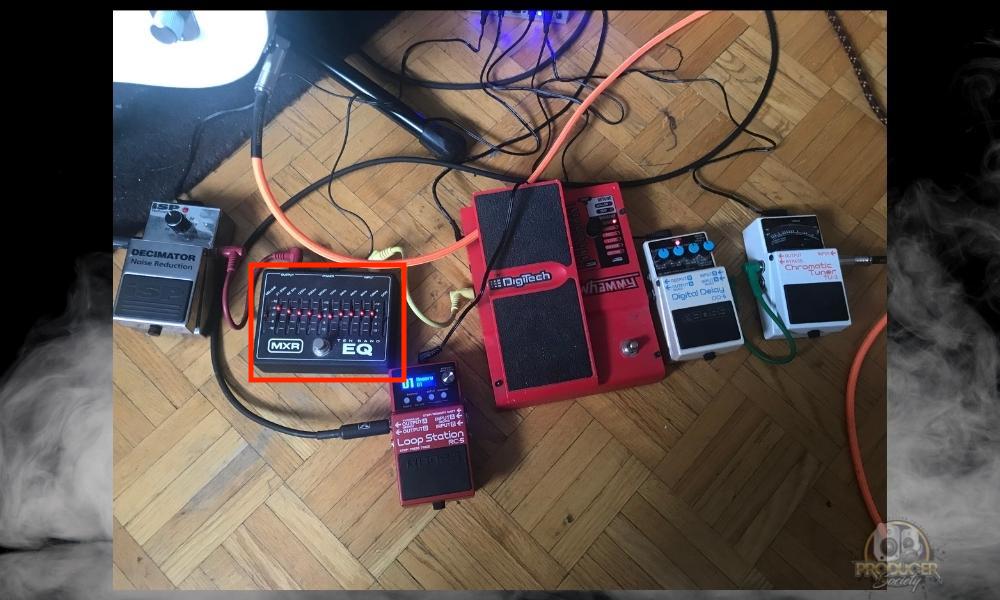
It is okay to leave your guitar pedals on if they have the proper power supply, however, you wouldn’t want to leave them all turned on overnight. Although, as I showed in my experiment, batteries are not as reliable as a pedalboard power supply.
A great rule of thumb to make electronics last as long as possible is to switch them off when they’re not in use. As a matter of fact, I even unplug them. But, if you have a 12-hour gig, you will be fine with the right power supply.
Batteries are notorious for only lasting a few hours if they even last that long. Probably the best way to power your pedals is with an MXR Isobrick that’s connected to a power conditioner like the Furman PST-8.
The reason that you need a proper power supply and power conditioner is to be able to connect all of your pedals to one power source, and then be able to power that source with the correct amount of voltage (here’s a great Sweetwater video on that).
Other Articles You May Be Interested In
- The Ultimate Troubleshooting Guide to Guitar Pedals [EASY]
- Batteries in Guitar Pedals vs Power Supply – Which Is Better
- What Do Guitarists Step On? – Guitar Pedals
- Does The Compressor Pedal Go Before Fuzz Pedals? [SIMPLE]
- How to Fix A Wet Guitar Pedal [Dead SIMPLE]
Important Things to Note About Pedals and Digital Gear
1) You Can Make A Case For Why Computer Plugins Are Better
Much of what I’ve said in this article is debatable. And it’ll probably be dated at a certain point as well. I think there will come a time, eventually, when the plugins you can get in your DAW are better than analog pedals.
Additionally, there are players out there who can probably get a much better tone with DAWs and plugins than I can with an amplifier and an expensive pedalboard. That said, as a general rule, I still think most analog pedals are better than their plugin counterparts.


 Written By :
Written By :
